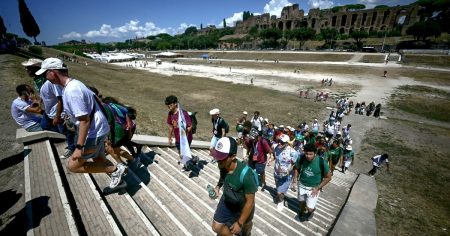The Imperative of Implementing the 65-Year Retirement Age Policy in Nigerian Colleges of Agriculture
The Senior Staff Association of Universities, Teaching Hospitals, Research Institutes, and Associated Institutions (SSAUTHRIAI) has made a compelling case for the immediate implementation of the 65-year retirement age policy for all staff categories in Nigerian Colleges of Agriculture and related disciplines. This call, articulated in a communiqué issued following the association’s Sectoral Council Meeting in Jos, Plateau State, underscores the vital role this policy plays in ensuring equity, fostering institutional stability, and retaining experienced personnel within this critical sector of the Nigerian economy. The current retirement age of 60 for non-academic staff in these institutions creates a disparity, leading to the loss of valuable expertise and hindering the overall progress of agricultural education and research. Extending the retirement age to 65 would harmonize the policy with that of university lecturers, ensuring equal opportunities for all categories of staff and maximizing their contributions to the sector’s growth.
Addressing the Plight of Unpaid Entitlements and Revised Conditions of Service
Beyond the retirement age issue, SSAUTHRIAI has voiced its deep concern over the persistent delay in the payment of various entitlements due to its members. These outstanding payments include the wage award allowance previously approved by the federal government, the consequential adjustment of the national minimum wage, peculiar allowance arrears unjustly withheld from certain colleges, hazard allowance, and outstanding arrears from the 25% and 35% salary increment. This delay in payment represents a significant financial burden on staff, impacting their morale and overall well-being. The association strongly urges the federal government to expedite the release and implementation of these entitlements as a matter of priority.
Furthermore, SSAUTHRIAI has emphasized the need for the government to expedite the implementation of the revised conditions and schemes of service for staff in Colleges of Agriculture and allied institutions. The prolonged delay in this regard has hampered career progression and institutional governance, creating uncertainty and frustration among staff. The revised conditions of service are essential for ensuring equitable treatment, promoting professional development, and enhancing the overall effectiveness of these institutions.
Reclassifying Colleges of Agriculture and Reinstatement in TETFund Intervention Scheme
SSAUTHRIAI has also challenged the federal government’s classification of Colleges of Agriculture as monotechnics. The association argues that this classification fails to recognize the breadth of academic programs offered by these institutions, which include both National Diploma and Higher National Diploma certifications. The association emphasizes the need for these colleges to be recognized as polytechnics, on par with other institutions offering similar programs. This reclassification would accurately reflect the diverse nature of their academic offerings and provide them with the appropriate level of recognition and support.
In addition, SSAUTHRIAI has appealed for the urgent re-inclusion of Colleges of Agriculture and allied institutions in the Tertiary Education Trust Fund (TETFund) intervention scheme. The continued exclusion of these institutions from TETFund support contradicts the government’s stated commitment to raising educational standards and places these institutions at a significant disadvantage compared to other tertiary institutions. Reinstatement in the TETFund scheme is crucial for providing these institutions with the necessary resources to improve infrastructure, enhance research capabilities, and deliver quality agricultural education.
Prioritizing Internal Appointments for Leadership Positions
Addressing a critical concern regarding leadership appointments, SSAUTHRIAI has expressed strong reservations about the recurring practice of appointing university professors and external personnel as Provosts, Rectors, or Chief Executive Officers of Colleges of Agriculture. The association argues that these appointments undermine career motivation and capacity development within the institutions. It advocates for the prioritization of qualified and competent professionals from within the system for these leadership roles, ensuring continuity, fostering internal growth, and recognizing the expertise and dedication of existing staff.
Conclusion: A Call for Urgent Action to Safeguard the Future of Agricultural Education
In conclusion, SSAUTHRIAI’s communique highlights the urgent need for the federal government to address the critical issues affecting Colleges of Agriculture and related disciplines in Nigeria. The implementation of the 65-year retirement age policy, the prompt payment of outstanding entitlements, the implementation of revised conditions of service, the reclassification of these institutions, their re-inclusion in the TETFund scheme, and the prioritization of internal appointments for leadership positions are all essential steps towards strengthening agricultural education and research in the country. The federal government is urged to give favorable consideration to these resolutions to ensure industrial peace, promote institutional effectiveness, and foster the sustainable development of Nigeria’s agricultural sector. The timely implementation of these measures will not only enhance the welfare of staff but also bolster the capacity of these institutions to contribute meaningfully to national development. The future of agricultural education and research in Nigeria hinges on the government’s responsiveness to these critical concerns.














